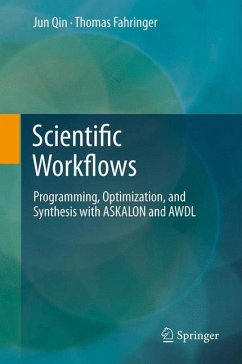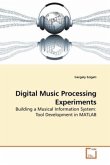Scientific Workflows are a new way to model complex scientific tasks. With Scientific Workflow Management Systems it is possible to map required steps of a Scientific Workflow onto available computational resources, mainly in the form of web services. This way Scientific Workflows offer access to highly specialised functions which can be orchestrated to solve complex problems. Biologists who perform microarray experiments produce large amounts of raw data which they them self often cannot process and analyse. Because some of the best statistical methods in this area are implemented as packages for the R programming language Biologists often have to rely on Statisticians or Bioinformatics for the analysis of their data. This work gives an overview of the current state of Scientific Workflows and Scientific Workflow Management Systems and shows how pieces of R code can be wrapped into web services. With these web services workflows have been designed using Taverna, a prominent example for Scientific Workflow Management Systems.
Bitte wählen Sie Ihr Anliegen aus.
Rechnungen
Retourenschein anfordern
Bestellstatus
Storno








